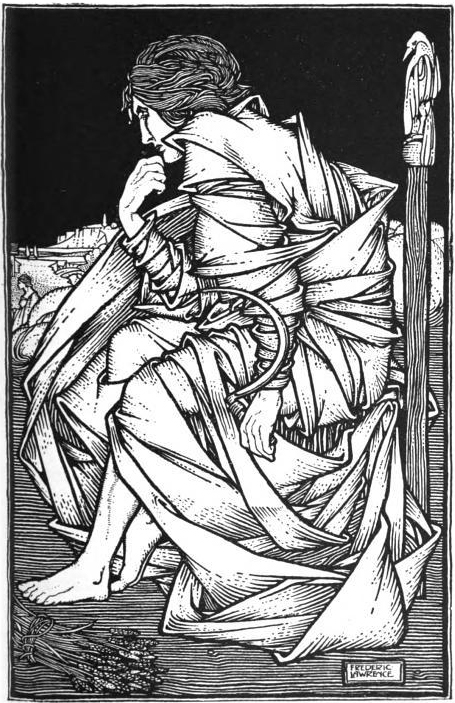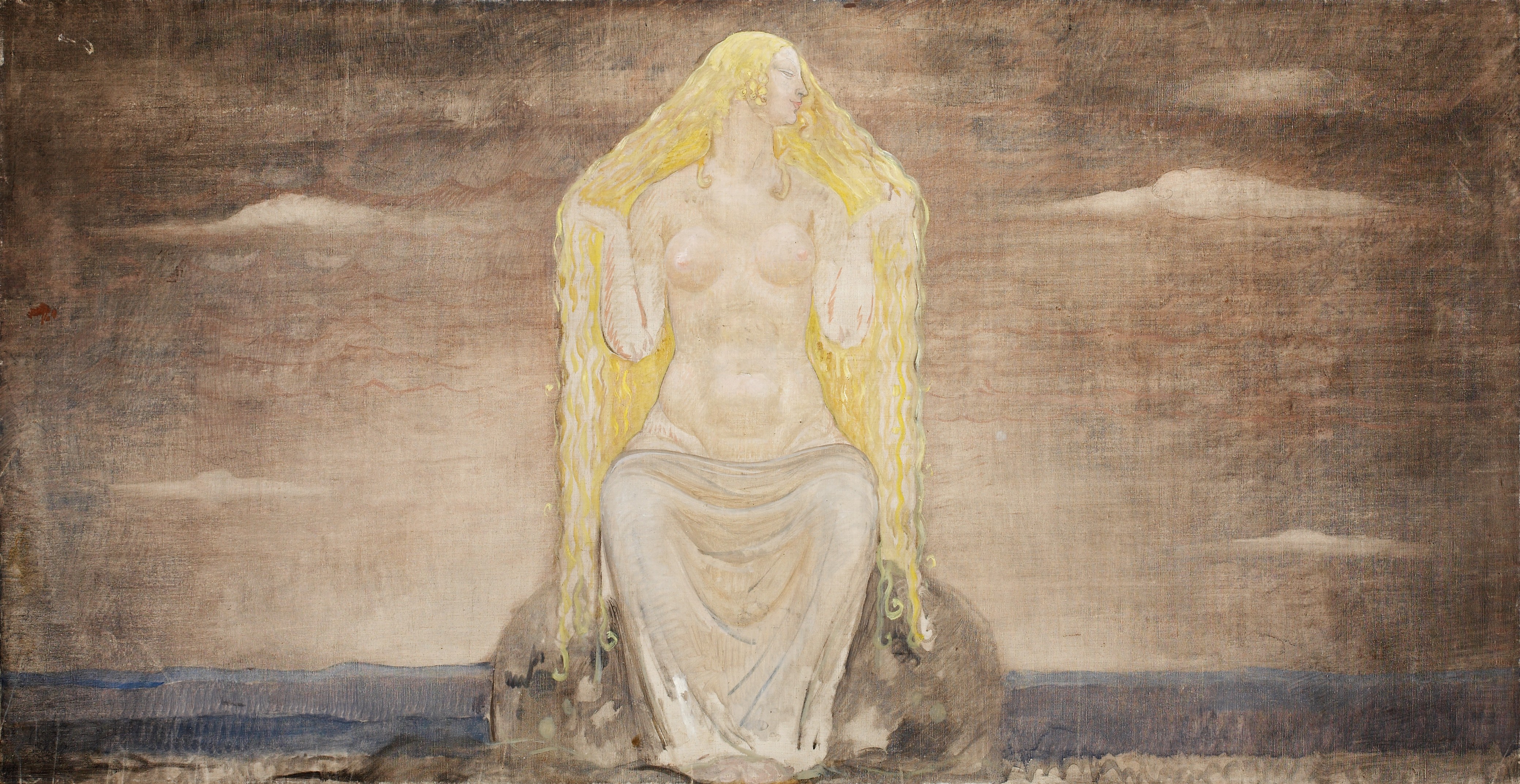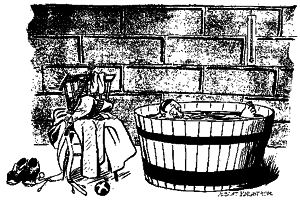|
Gerðr
In Norse mythology, Gerðr (Old Norse: ; "fenced-in"Orchard (1997:54).) is a jötunn, goddess, and the wife of the god Freyr. Gerðr is attested in the ''Poetic Edda'', compiled in the 13th century from earlier traditional sources; the ''Prose Edda'' and ''Heimskringla'', written in the 13th century by Snorri Sturluson; and in the poetry of skalds. ''Gerðr'' is sometimes modernly anglicized as Gerd or Gerth. In both the ''Poetic Edda'' and the ''Prose Edda'', Freyr sees Gerðr from a distance, becomes deeply lovesick at the sight of her shimmering beauty, and has his servant Skírnir go to Jötunheimr (where Gerðr and her father Gymir reside) to gain her love. In the ''Poetic Edda'' Gerðr initially refuses, yet after a series of threats by Skírnir she is forced to yield. In the ''Prose Edda'', no mention of threats is made. In both sources, Gerðr agrees to meet Freyr at a fixed time at the location of Barri and, after Skírnir returns with Gerðr's response, Freyr laments t ... [...More Info...] [...Related Items...] OR: [Wikipedia] [Google] [Baidu] |
Freyr
Freyr (Old Norse: 'Lord'), sometimes anglicized as Frey, is a widely attested god in Norse mythology, associated with kingship, fertility, peace, and weather. Freyr, sometimes referred to as Yngvi-Freyr, was especially associated with Sweden and seen as an ancestor of the Swedish royal house. According to Adam of Bremen, Freyr was associated with peace and pleasure, and was represented with a phallic statue in the Temple at Uppsala. According to Snorri Sturluson, Freyr was "the most renowned of the æsir", and was venerated for good harvest and peace. In the mythological stories in the Icelandic books the ''Poetic Edda'' and the ''Prose Edda'', Freyr is presented as one of the Vanir, the son of the god Njörðr and his sister-wife, as well as the twin brother of the goddess Freyja. The gods gave him Álfheimr, the realm of the Elves, as a teething present. He rides the shining dwarf-made boar Gullinbursti and possesses the ship Skíðblaðnir which always has a favorable ... [...More Info...] [...Related Items...] OR: [Wikipedia] [Google] [Baidu] |
Skírnismál
''Skírnismál'' (Old Norse: 'The Lay of Skírnir') is one of the poems of the ''Poetic Edda''. It is preserved in the 13th-century manuscripts Codex Regius and AM 748 I 4to but may have been originally composed in the early 10th century. Many scholars believe that the poem was acted out, perhaps in a sort of '' hiéros gamos''. Synopsis The prose prologue to the poem says that the god Freyr, the son of Njörðr, sits in Odin's throne, Hliðskjálf and looked over all the worlds. On looking to Jötunheimr, the land of the giants, Freyr sees a beautiful girl, Gerðr, and is immediately seized by desire. Fearing that the object of his heart's desire is unattainable, gloom settles upon him. The poem itself starts with the wife of Njörðr, Skaði, bidding Skírnir to ask Freyr why he is so sad. Freyr's response is sullen, yet he does confess his feelings and asks Skírnir to undertake a journey to woo Gerðr on Freyr's behalf. Skírnir agrees, and Freyr furnishes him with his magi ... [...More Info...] [...Related Items...] OR: [Wikipedia] [Google] [Baidu] |
Vanir
In Norse mythology, the Vanir (; Old Norse: , singular Vanr ) are a group of gods associated with fertility, wisdom, and the ability to see the future. The Vanir are one of two groups of gods (the other being the Æsir) and are the namesake of the location Vanaheimr (Old Norse "Home of the Vanir"). After the Æsir–Vanir War, the Vanir became a subgroup of the Æsir. Subsequently, members of the Vanir are sometimes also referred to as members of the Æsir. The Vanir are attested in the ''Poetic Edda'', compiled in the 13th century from earlier traditional sources; the ''Prose Edda'' and ''Heimskringla'', both written in the 13th century by Snorri Sturluson; and in the poetry of skalds. The Vanir are only attested in these Old Norse sources. All sources describe the god Njörðr, and his children Freyr and Freyja as members of the Vanir. A euhemerism, euhemerized prose account in ''Heimskringla'' adds that Sister-wife of Njörðr, Njörðr's sister—whose name is not provided—a ... [...More Info...] [...Related Items...] OR: [Wikipedia] [Google] [Baidu] |
Aurboða
Aurboða (also Aurboda; Old Norse: "gravel-bidder" or "gravel-offerer") is a jötunn in Norse mythology. She is married to the jötunn Gymir and is the mother of Gerðr. Name The origin of the name is unclear. The second part is certainly related to the Old Norse verb ('to offer'), but the meaning of the first element has been debated. Most scholars connect it to the Old Norse ('gravel, wet sand or earth, mud'), and translate as 'gravel-bidder' or 'gravel-offerer'. This interpretation is encouraged by Aurboða's relationship with Gymir and Gerðr, who have also been regarded as chthonic beings in scholarship. An alternative theory is to translate as 'gold-bidder' by comparing the first element to a word (from Latin ), as suggested by the depiction of Aurboða as a girl rather than a jötunn in ''Fjölsvinnsmál''. According to philologist Rudolf Simek, however, the testimony of ''Fjölsvinnsmäl'' is probably secondary, and the root is also found in the names of other ... [...More Info...] [...Related Items...] OR: [Wikipedia] [Google] [Baidu] |
Gymir (father Of Gerðr)
Gymir (Old Norse: ) is a jötunn in Norse mythology. He is the spouse of Aurboða, and the father of the beautiful jötunn Gerðr, who married the god Freyr. ''Gymir'' may be the same figure as Ægir, a personification of the sea or ocean, or a separate figure who shares the same name. Name The meaning of the Old Norse name ''Gymir'' is unclear. Proposed translations include 'the earthly' (from Old Norse ''gumi''), 'the wintry one' (from ''gemla''), or 'the protector', the 'engulfer' (from ''geyma''). In ''Lokasenna'' (Loki's Flyting) and ''Skáldskaparmál'' (The Language of Poetry), Gymir is given by Snorri Sturluson as an alternative name for the divine personification of the sea Ægir. Rudolf Simek argues that it may be an erroneous interpretation of kennings in which different giant-names are used interchangeably. Attestations ''Poetic Edda'' In both ''Skírnismál'' (The Lay of Skírnir) and ''Gylfaginning'' (The Beguiling of Gylfi), Gymir is portrayed as the spouse of Aurb ... [...More Info...] [...Related Items...] OR: [Wikipedia] [Google] [Baidu] |
Fjölnir
Fjölnir ( non, Fjǫlnir ) is a legendary king in Norse mythology said to have been the son of Freyr (Frey) and his consort Gerðr (Gertha). The name appears in a variety of forms, including Fiolnir, Fjölner, Fjolner, and Fjolne. He was claimed as the progenitor of the Swedish Yngling dynasty, reigning from Gamla Uppsala. According to the ''Grottasöngr'', Fjölnir lived from the 1st century BC to the early 1st century AD. Fjölnir was said to have drowned in a vat of mead while visiting Peace-Fróði, a similarly-legendary king of Zealand, the Danish island. Fjölnir was then succeeded by his son Sveigðir. Name The etymology of the Old Norse name ''Fjǫlnir'' is unclear. It could stem from the verb ''fela'' ('to hide'), with ''Fjǫlnir'' as 'the concealer f the mead of poetry">mead_of_poetry.html" ;"title="f the mead of poetry">f the mead of poetry, or it may have emerged as an abbreviation of ''fjǫlviðr'' ('the very wise'). A derivation from ''fjǫl'' ('crowd') has al ... [...More Info...] [...Related Items...] OR: [Wikipedia] [Google] [Baidu] |
Jötunn
A (also jotun; in the normalised scholarly spelling of Old Norse, ; ; plural / ) or, in Old English, (plural ) is a type of supernatural being in Germanic mythology. In Norse mythology, they are often contrasted with gods (Æsir and Vanir) and other non-human figures, such as dwarfs and elves, although the groupings are not always mutually exclusive. The entities themselves are referred to by several other terms, including , (or ) and if male and or if female. The typically dwell across boundaries from the gods and humans in lands such as . The are frequently attested throughout the Old Norse record, with also featuring in the Old English epic poem ''Beowulf''. The usage of the terms is dynamic, with an overall trend that the beings become portrayed as less impressive and more negative as Christianity becomes more influential. Although the term "giant" is sometimes used to gloss the word "" and its apparent synonyms in some translations and academic texts, are not ... [...More Info...] [...Related Items...] OR: [Wikipedia] [Google] [Baidu] |
Jötunheimr
The terms Jötunheimr (in Old Norse orthography: Jǫtunheimr ; often anglicised as Jotunheim) or Jötunheimar refer to either a land or multiple lands in Nordic mythology inhabited by the jötnar. are typically, but not exclusively, presented in Eddic sources as prosperous lands located to the north and are commonly separated from the lands inhabited by gods and humans by barriers that cannot be traversed by usual means. Etymology non, Jǫtunheimr is a compound word formed from non, ' jǫtunn' and , meaning a 'home' or 'world'. When attested in Eddic sources, the word is typically found in its plural form, ('-lands'). Attestations Poetic Edda are mentioned in three poems of the Poetic Edda. In the beginning of Völuspá, the coming of three women out of marks the end of the Age of Gold for the gods. Towards the end of the poem, in the section describing the onset of Ragnarök, they are mentioned as follows: In the prose prologue Skírnismál, while sitting on Hliðsk ... [...More Info...] [...Related Items...] OR: [Wikipedia] [Google] [Baidu] |
Skírnir
In Norse mythology, Skírnir (Old Norse" ; "bright one"Orchard (1997:149).) is the god Freyr's messenger and vassal. In the ''Poetic Edda'' poem ''Skírnismál'', Skírnir is sent as a messenger to Jötunheimr to conduct lovesick Freyr's wooing of the fair goddess Gerðr on condition of being given Freyr's powerful sword as a reward. The goddess refuses the advances until Skírnir threatens Gerðr with his ''gambantein'', a magic wand. In chapter 34 of the ''Prose Edda'' poem ''Gylfaginning'', Skírnir also performs favors for Odin, father of the gods. After the vicious wolf Fenrir evades capture, Skirnir visits the mountain dwarves, known for their mining and smithing. Together they forge the magical restraint Gleipnir for the purpose of binding the wolf. Such undertakings mark Skirnir as a crafty servant. See also *Skirnir Mountains Skirnir Mountains ( da, Skirners Bjerge) is a group of nunataks in the King Frederick VI Coast, Sermersooq municipality, SE Greenland. The range ... [...More Info...] [...Related Items...] OR: [Wikipedia] [Google] [Baidu] |
Barri
In Norse mythology, Barri is the place where Freyr and Gerðr are to consummate their union, as stated in the ''Skírnismál'': :Barri the grove is named, :which we both know, :the grove of tranquil paths. :Nine nights hence, :there to Niörd’s son :Gerd will grant delight. : ::—''För Skirnis eðr Skirnismál'' (39)Thorpe's translation In Snorri Sturluson's account of the myth (found in ''Gylfaginning'', 37), the place is called Barrey or Barey: :And nine nights later she was to come to the place called Barrey, and then go to the bridal with Freyr. : ::—''Gylfaginning'' (37)Brodeur's translation The meaning of the name is uncertain. Barri is called a grove (''lundr'') but Bar(r)ey is probably an island (''ey'' being the Old Norse for "island")Faulkes 1988. and could be connected with Barra, one of the Hebrides islands, which was once called Barrey.Simek 1996. The meaning of the first part of the name, ''barr'', is not very enlightening for it has several meanings: "pine need ... [...More Info...] [...Related Items...] OR: [Wikipedia] [Google] [Baidu] |
Skírnir And Gerðr I By Frølich
In Norse mythology, Skírnir (Old Norse" ; "bright one"Orchard (1997:149).) is the god Freyr's messenger and vassal. In the ''Poetic Edda'' poem ''Skírnismál'', Skírnir is sent as a messenger to Jötunheimr to conduct lovesick Freyr's wooing of the fair goddess Gerðr on condition of being given Freyr's powerful sword as a reward. The goddess refuses the advances until Skírnir threatens Gerðr with his ''gambantein'', a magic wand. In chapter 34 of the ''Prose Edda'' poem ''Gylfaginning'', Skírnir also performs favors for Odin, father of the gods. After the vicious wolf Fenrir evades capture, Skirnir visits the mountain dwarves, known for their mining and smithing. Together they forge the magical restraint Gleipnir for the purpose of binding the wolf. Such undertakings mark Skirnir as a crafty servant. See also *Skirnir Mountains Skirnir Mountains ( da, Skirners Bjerge) is a group of nunataks in the King Frederick VI Coast, Sermersooq municipality, SE Greenland. The range ... [...More Info...] [...Related Items...] OR: [Wikipedia] [Google] [Baidu] |
Skaði
In Norse mythology, Skaði (; Old Norse: ; sometimes anglicized as Skadi, Skade, or Skathi) is a jötunn and goddess associated with bowhunting, skiing, winter, and mountains. Skaði is attested in the ''Poetic Edda'', compiled in the 13th century from earlier traditional sources; the ''Prose Edda'' and in ''Heimskringla'', written in the 13th century by Snorri Sturluson, and in the works of skalds. Skaði is the daughter of the deceased Þjazi, and Skaði married the god Njörðr as part of the compensation provided by the gods for killing her father Þjazi. In ''Heimskringla'', Skaði is described as having split up with Njörðr and as later having married the god Odin, and that the two produced many children together. In both the ''Poetic Edda'' and the ''Prose Edda'', Skaði is responsible for placing the serpent that drips venom onto the bound Loki. Skaði is alternately referred to as Öndurguð (Old Norse 'ski god') and Öndurdís (Old Norse 'ski dís'). The etymolog ... [...More Info...] [...Related Items...] OR: [Wikipedia] [Google] [Baidu] |






